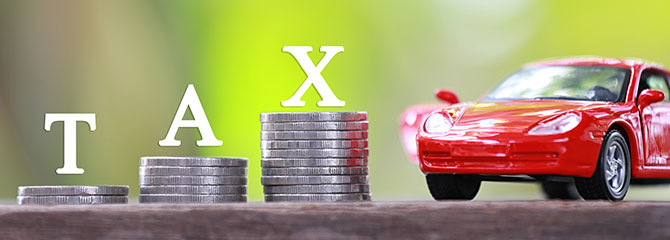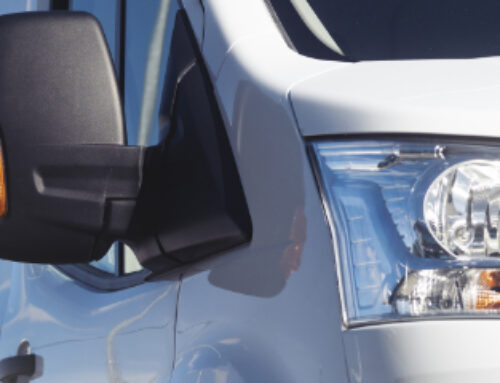[fusion_builder_container hundred_percent=”no” equal_height_columns=”no” menu_anchor=”” hide_on_mobile=”small-visibility,medium-visibility,large-visibility” class=”” id=”” background_color=”” background_image=”” background_position=”center center” background_repeat=”no-repeat” fade=”no” background_parallax=”none” parallax_speed=”0.3″ video_mp4=”” video_webm=”” video_ogv=”” video_url=”” video_aspect_ratio=”16:9″ video_loop=”yes” video_mute=”yes” overlay_color=”” video_preview_image=”” border_size=”” border_color=”” border_style=”solid” padding_top=”” padding_bottom=”” padding_left=”” padding_right=””][fusion_builder_row][fusion_builder_column type=”1_1″ layout=”1_1″ background_position=”left top” background_color=”” border_size=”” border_color=”” border_style=”solid” border_position=”all” spacing=”yes” background_image=”” background_repeat=”no-repeat” padding_top=”” padding_right=”” padding_bottom=”” padding_left=”” margin_top=”0px” margin_bottom=”0px” class=”” id=”” animation_type=”” animation_speed=”0.3″ animation_direction=”left” hide_on_mobile=”small-visibility,medium-visibility,large-visibility” center_content=”no” last=”no” min_height=”” hover_type=”none” link=””][fusion_text columns=”” column_min_width=”” column_spacing=”” rule_style=”default” rule_size=”” rule_color=”” hide_on_mobile=”small-visibility,medium-visibility,large-visibility” class=”” id=”” animation_type=”” animation_direction=”left” animation_speed=”0.3″ animation_offset=””]
On 9th July, the Government published the company car Benefit-in-Kind (BiK) tax rates that will apply from April 2020 through to April 2023, providing long-awaited clarity for both drivers and decision-makers.
The most obvious change brought about by this announcement is that, from April 2020, company cars producing no emissions will not attract any BiK tax liability. The zero percent BiK rate will also apply to cars producing 1-50g/km of carbon dioxide, that can travel more than 130 miles on battery power alone.
The BiK tax rates for these cars will then increase to 1% for 2021/22 and 2% for 2022/23, if they are registered after 6th April 2020.
With these changes in mind, it’s more important than ever to understand how car benefit in kind tax is calculated, and what impact this could have on your own and your fleet’s finances.
In this guide we’ll only look at traditional company car schemes. If you’d like to read more about taxation for schemes such as Salary Sacrifice, please click here to visit the website of our sister company CLM Fleet Management.
The basics: how to calculate benefit in kind on company cars
Let’s start with a typical situation where an employee is simply offered a company car with no cash alternative; see below if you’re interested in reading more about cash alternatives.
To calculate your company car benefit in kind tax liability you need to know four things:
- The value of the car (P11D value)
- The car’s official CO2 emissions rating plus its fuel type
- The appropriate marginal income tax band
- Whether any personal contributions will be made to the cost of the car
P11D Value of the car
Basically, the higher the value of the car the more tax is payable. This isn’t just the basic list price, it also includes any factory fitted options, VAT and delivery charges. It does not include the car’s first registration fee or its annual vehicle tax (VED).
CO2 emissions and fuel type
The UK’s company car tax regime is based on the amount of CO2 produced by a car for each kilometre it travels. It’s stated as the number of grams per kilometre, or g/km CO2. The car will fall into one of 29 bands, each of which has a percentage figure that is applied to the P11D value. For the 2019/20 tax year, the lowest percentage is 16% and the highest is 37%.
There is also a supplement of 4% for all diesel-powered cars that do not meet the latest Real Driving Emissions 2 (RDE2) standards up to the maximum 37%.
From 6th April 2020, two different BiK rate tables will apply, depending on whether the car was registered before or after that date. To see a full set of tables for car BiK rates to 2021 click here.
Marginal income tax band
The higher the marginal (highest applicable) income tax band, the more benefit in kind tax is payable for any chosen car.
For the tax year 2019/20 the income tax bands are:
- Basic Rate tax payers – up to £50,000 – 20%
- Higher Rate tax payers – £50,001 to £150,000 – 40%
- Additional Rate tax payers – Over £150,000 – 45%
The above includes the personal allowance and applies for England, Wales and Northern Ireland. For more information on tax bands visit the HMRC website.
Personal contributions
One-off contributions to the cost of a car, and any payments that are made to the employer for private use, result in the same amount being deducted from the overall BiK tax liability.
Also, if access to the car is removed for a period of 30 consecutive days or more, the BiK tax will be reduced in proportion to the amount of time it is unavailable.
To find out more about how personal contributions and availability affect your tax liability visit HMRC’s Company Car Tax calculator.
Some examples:
[/fusion_text][fusion_content_boxes layout=”icon-boxed” columns=”2″ title_size=”” heading_size=”2″ title_color=”” body_color=”#606060″ backgroundcolor=”#efefef” icon=”” iconflip=”” iconrotate=”” iconspin=”no” iconcolor=”” icon_circle=”” icon_circle_radius=”” circlecolor=”” circlebordersize=”” circlebordercolor=”” outercirclebordersize=”” outercirclebordercolor=”” icon_size=”” icon_hover_type=”” hover_accent_color=”” image=”” image_id=”” image_max_width=”” link_type=”” button_span=”” link_area=”” link_target=”” icon_align=”left” animation_type=”” animation_delay=”” animation_offset=”” animation_direction=”left” animation_speed=”0.3″ margin_top=”” margin_bottom=”” hide_on_mobile=”small-visibility,medium-visibility,large-visibility” class=”” id=””][fusion_content_box title=”Example 1″ backgroundcolor=”#efefef” icon=”fa-bookmark far” iconflip=”” iconrotate=”” iconspin=”no” iconcolor=”” circlecolor=”” circlebordersize=”” circlebordercolor=”” outercirclebordersize=”” outercirclebordercolor=”” image=”” image_id=”” image_max_width=”” link=”” linktext=”Read More” link_target=”” animation_type=”” animation_direction=”left” animation_speed=”0.3″ animation_offset=””]
VW Golf GT 2.0 TDI 150PS 7-speed DSG 5 Door
P11D Value – £27,540
CO2 Emissions – 118g/km – 31% of P11D value is taxed in 2019/20 (includes diesel supplement)
Employee’s income tax rate – Basic 20%
To calculate the company car tax we use the following formulae:
P11D Value x BiK CO2 Rate = BiK Value
And then:
BiK Value x Tax Rate = Annual Company Car Tax
So in this example:
£27,540 x 31% = £8,537.40
£8,537.40 x 20% = £1,707.48 Annual Company Car tax
Or £142.29 per month
[/fusion_content_box][fusion_content_box title=”Example 2″ backgroundcolor=”#efefef” icon=”fa-bookmark far” iconflip=”” iconrotate=”” iconspin=”” iconcolor=”” circlecolor=”” circlebordersize=”” circlebordercolor=”” outercirclebordersize=”” outercirclebordercolor=”” image=”” image_id=”” image_max_width=”” link=”” linktext=”” link_target=”” animation_type=”” animation_direction=”left” animation_speed=”0.3″ animation_offset=””]BMW 320d
SE Automatic
P11D Value – £35,160
CO2 Emissions – 110g/km – 30% of P11D value is taxed in 2019/20 (includes diesel supplement)
Employee’s income tax rate – Higher 40%
To calculate the company car tax we use the following formulae:
P11D Value x BiK CO2 Rate = BiK Value
And then:
BiK Value x Tax Rate = Annual Company Car Tax
So in this example:
£35,160 x 30% = £10,548
£10,548 x 40% = £4,219.20 Annual Company Car tax
Or £351.60 per month[/fusion_content_box][/fusion_content_boxes][fusion_text columns=”” column_min_width=”” column_spacing=”” rule_style=”default” rule_size=”” rule_color=”” hide_on_mobile=”small-visibility,medium-visibility,large-visibility” class=”” id=””]
For drivers eligible for a company car with a cash option
Before 6 April 2017 it made no difference from a tax perspective whether you had a cash option or not. Since then, drivers taking delivery of a new car are taxed either on the BiK value of their car or on the value of their cash alternative, whichever is higher.
This means that a driver can select any car with a BiK value below that of their cash alternative and, regardless of its precise value or its CO2 emissions, they will pay the same amount of tax – based on the value of the cash they have foregone.
One way around this is to choose an Ultra-Low Emission Vehicle (ULEV – cars emitting 75g/km CO2 or less), as these are exempt from the above rule. To learn more about the tax advantages of running a ULEV click here.
Are there ways of avoiding Benefit in Kind tax?
One option, particularly well suited to organisations with drivers that cover high annual business mileages is an Employee Car Ownership (ECO) scheme. These schemes are designed so that the individual driver takes ownership of the car and so BiK tax is not payable on its value. They can also make use of tax-free Approved Mileage Allowance Payments to help to fund the cost of the car. If you’d like to know more about ECO schemes click here.
If you’d like to discuss company cars, ECO schemes or any other aspect of your fleet requirements click here or call us on 0845 643 1319.
[/fusion_text][/fusion_builder_column][/fusion_builder_row][/fusion_builder_container]








Relevant content on benefits of Kind Tax. Do keep posting